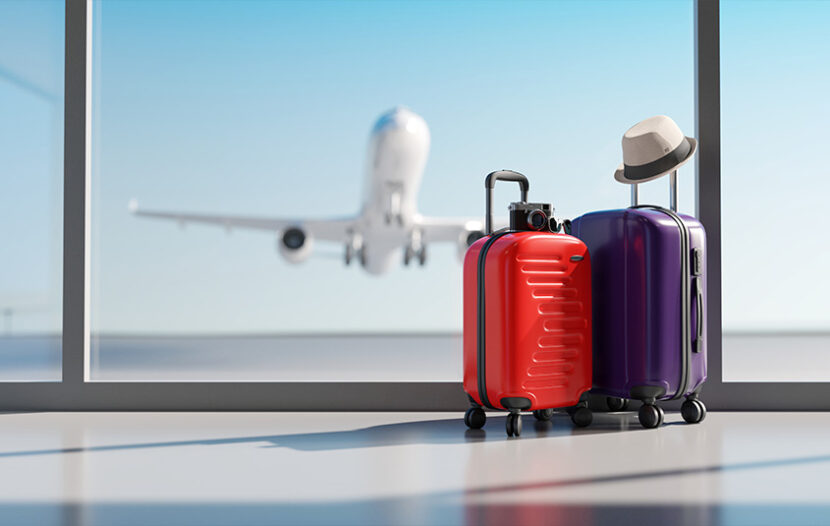TORONTO — News that travellers arriving in Canada will no longer be required to show proof of pre-arrival COVID test results is generating reaction from airlines and industry groups.
As reported yesterday, pre-arrival testing requirements will lift for fully vaccinated travellers starting April 1, 2022. There will still be random testing for fully vaccinated arrivals, however there will be no need to quarantine while waiting for those results.
Unvaccinated arrivals must still submit proof of negative results from a PCR test to meet the pre-arrival test requirement, plus unvaccinated travellers will also be tested on arrival, and again eight days later, and will be required to quarantine for 14 days.
The Canadian Travel and Tourism Roundtable, an advocate since the early months of the pandemic for science-based decisions and safe travel, said it welcomes the lifting of the pre-arrival test rule for fully vaccinated travellers.
“This positive development will bring Canada into better alignment with other major countries, is a recognition that the Canadian travel and tourism industry has long been among the country’s safest, and brings the industry closer to a return to normal,” says the Roundtable.
RJ Steenstra, Chair of the CAC Canadian Policy Council, said the move brings Canada in line with many other jurisdictions, including the UK, Denmark, Switzerland and Ireland, “and allows individuals and businesses to plan their summer and fall travel.”
“IMMEDIATE AND DRAMATIC” UPTICK
As reported yesterday, both Air Canada and Sunwing issued statements immediately after the federal government’s announcement, applauding the move.
Meanwhile in an interview with wire service The Canadian Press, WestJet’s chief commercial officer, John Weatherill, said the government’s announcement will open the floodgates.
“Our view is that the desire to travel has remained throughout COVID, but it hasn’t translated into booking demand because of the restrictions that have been imposed on the industry,” said Weatherill.
He added that WestJet is preparing for an “immediate and dramatic” uptick in bookings. “We are in some cases approaching the demand levels we saw in 2019, pre-pandemic, and that’s really encouraging for us. It’s going to be quite a busy spring break and spring travel season for us,” Weatherill said.
Europe is already seeing strong demand, he added.
Earlier this week WestJet announced its summer 2022 schedule, one that should bring its network back to pre-pandemic levels.
Looking to get off the ground this summer, new carrier Canada Jetlines, which yesterday announced its Stage 1 licensing approval by the CTA, cheered the news as well.
“We feel immense relief and excitement following the Minister of Health’s announcement on dropping pre-departure testing requirements for Canadian arrivals,” said Canada Jetlines CEO, Eddy Doyle. He added: “This transition phase coincides with our upcoming launch and will be a key component in promoting travel back to Canada during peak season – then into the fall again with a forecasted record volumes of VFR and leisure traffic.”
NEED FOR FINANCIAL AID MORE PRESSING THAN EVER
While yesterday’s announcement is a key next step in travel’s recovery, the retail travel sector, and independent travel advisors in particular, are still in dire need of financial aid.
Since the start of the pandemic, calls for the government to reopen travel have dovetailed with calls from trade groups for financial support.
The latest advocacy from ACTA, announced yesterday, is a platform at HelpITA.ca where independent travel agents can record videos detailing their personal story and why immediate financial support is necessary. ACTA says the videos will be shared widely on social media and with politicians in a national advocacy campaign.
Meanwhile ACITA co-founder Judith Coates says the need for financial support for independent travel advisors is more pressing than ever.
Yesterday’s announcement about the elimination of pre-arrival test requirements for fully vaccinated travellers “was very welcome news, and this will definitely make the demand for travel in 2022 even stronger, but the fact remains that what is usually our busiest booking season will be coming to a close soon,” says Coates.
“For two years now, we’ve been asking the government to provide Independent Travel Advisors with aid on the same level as storefront agencies, who have received wage and rent subsidies to stay afloat. ITA’s did not receive any support from the tourism funding in the last budget, and there are some that have had to walk away and change career paths in order to support their family. Many have been forced to sell their homes, max out their line of credit, and cash in their retirement savings, all so they can continue to operate their businesses and support their clients,” says Coates.
The Independent Travel Agent Relief Program (ITARP) proposal, submitted in December 2021, is still with the federal government. While there are no guarantees of any new updates, the government typically tables its annual budget in late March or early April.

